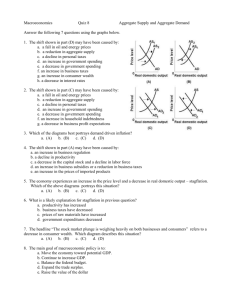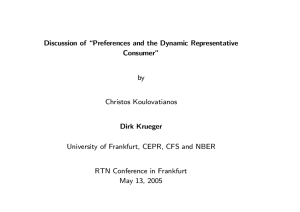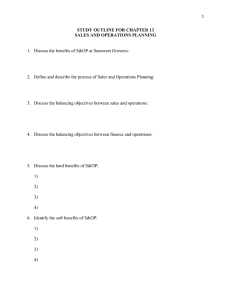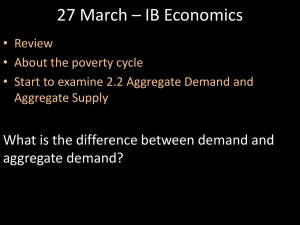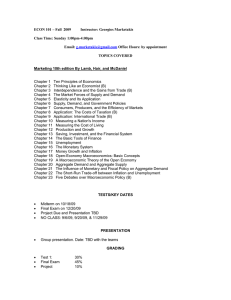3nd Lecture, ECON 5200, Welfare and Aggregation 1 Aggregate demand Kjell Arne Brekke
advertisement
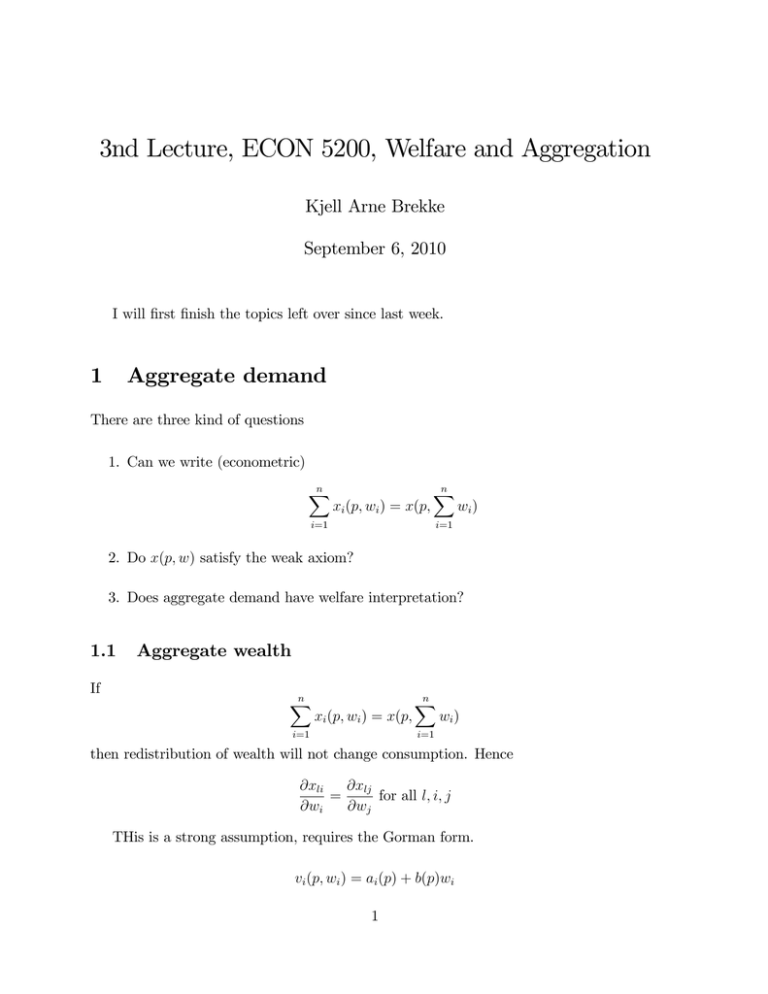
3nd Lecture, ECON 5200, Welfare and Aggregation Kjell Arne Brekke September 6, 2010 I will …rst …nish the topics left over since last week. 1 Aggregate demand There are three kind of questions 1. Can we write (econometric) n X xi (p; wi ) = x(p; i=1 n X wi ) i=1 2. Do x(p; w) satisfy the weak axiom? 3. Does aggregate demand have welfare interpretation? 1.1 If Aggregate wealth n X xi (p; wi ) = x(p; i=1 n X wi ) i=1 then redistribution of wealth will not change consumption. Hence @xli @xlj = for all l; i; j @wi @wj THis is a strong assumption, requires the Gorman form. vi (p; wi ) = ai (p) + b(p)wi 1 Altarnatively, we may de…ne a wealth distribution rule x(p; w) = w = n X i=1 n X xi (p; wi (p; w)) wi i=1 så med restriksjoner om hvordan formuen er fordelt kan vi lage slike aggregat Vi kan også anta at alle har like preferanser, da er det bare fordelingen av formuen som betyr noe. 1.2 Weak axiom Consider a simple wealth distribution rule wi = i w where X i = 1: i Does aggregate demand satisfy the weak axiom? De…nition 1 x(p; w) satis…es the weak axiom of revealed preferences if px(p0 ; w0 ) w and x(p0 ; w0 ) 6= x(p; w) =) p0 x(p; w) > w0 For individuals: Proposition 2 If the price change from p to p0 is compensated (w0 = p0 x(p; w)), then : (p0 p)(x(p0 ; w0 ) x(p; w)) 0 In the aggregate: The price change has to be compensated for all consumers To ensure that aggregate demand satisfy the weak axiom, we may ask for more structure on individual demand: De…nition 3 The law of uncompensated demand (p0 p)(x(p0 ; w) with strict inequality if x(p0 ; w) 6= x(p; w): 2 x(p; w)) 0 It is easy to show that the law of uncompensated demand aggregates. (No problem with the wealth distribution rule as wealth is unchanged). Proposition 4 LUD implies the weak axiom of revealed preferences Proof. Proposition 5 If preferences are homothetic, then xi (p; wi ) satisfy the uncompensated law of demand. Proof in textbook. (There are no gi¤en good) 1.3 Representative consumers Is there a representative consumer that would generate the observed aggregate demand? Proposition 6 Let v(p; w) = Pmax W (v1 (p; w1 ); :::vn (p; wn )) wi =w = W (v1 (p; w1 (p; w)); :::vn (p; wn (p; w)) then v(p; w) is the indirect utility for the representative consumer with x(p; w) = X xi (p:wi (p; w)) Proof. De…nition 7 A positive representative consumer relative to aggregate demand x is a normative representative consumer relative to the social welfare function W Note that the welfare interpretation is relative to one particular (unknown) welfare function and that the interpretation requires that for the reform in question, wealth is redistributed according to the rule with any policy reform. Quite a strong assumption. 3 1.4 The Gorman form Suppose that indirect utility are of Gorman form vi (p; wi ) = ai (p) + b(p)wi and utilitarian welfare W = X vi then we are at the optimum for any wealth distribution rule. So aggregate demand satis…es the weak axiom. Is this welfare function reasonable? 4

